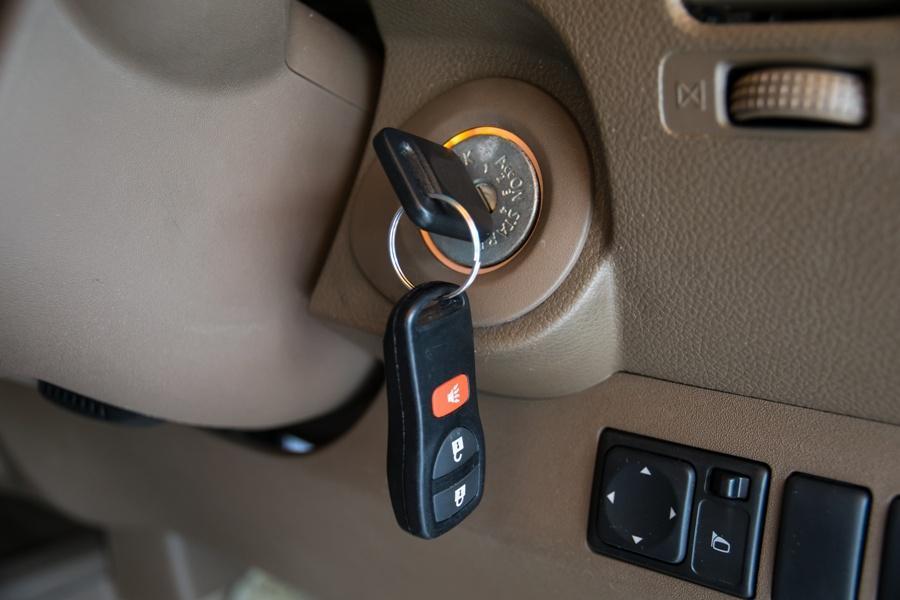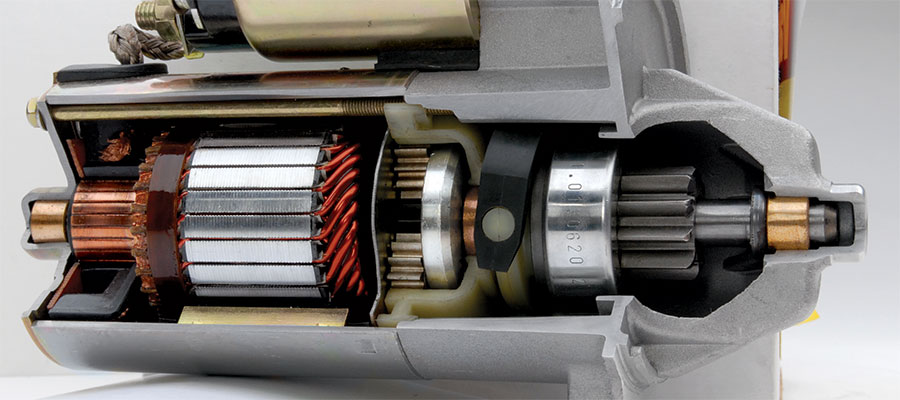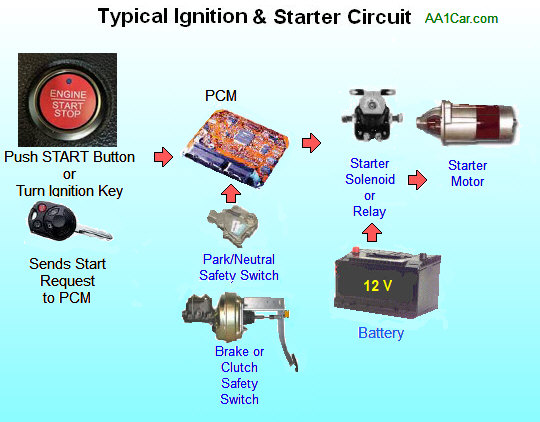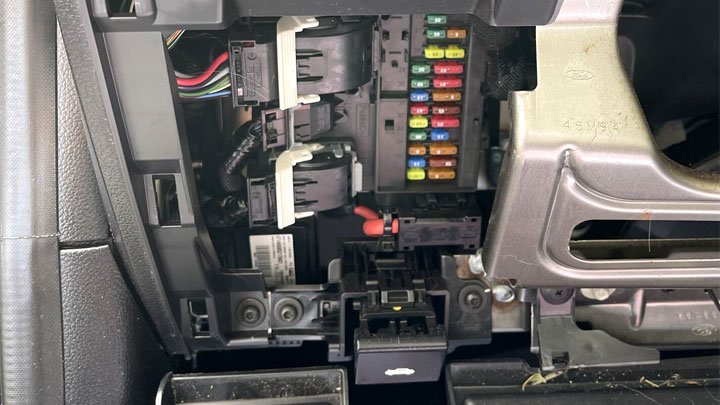Average Cost to Replace Car Starter
The average cost to replace a car starter ranges between $250 and $600. Costs vary based on parts and labor, as well as the vehicle make and model.
When your car refuses to start, one of the first components to check is the starter. A failing starter can render your vehicle immobile, which is why understanding the associated costs for replacement is crucial. An efficient starter system is fundamental for reliable car operation, prompting drivers to stay informed about potential expenses.
With factors like vehicle type and the choice between OEM or aftermarket parts influencing the price, it’s imperative to consider these variables when budgeting for repairs. Opting for a professional mechanic ensures the job is done correctly, although it might increase the overall cost. Being informed about the economic aspects of starter replacement can help car owners better prepare for such maintenance expenditures.
The Role Of The Car Starter
Your car’s starter plays a pivotal role in your vehicle’s ignition system. It jolts your engine to life when you turn the key, or push the start button. Simply put, without a working starter, your car won’t start. Let’s dive into what comprises a starter and how it functions.
Components And Function
The starter system consists of several key parts working together to turn your engine over. Main components include:
- Motor: Powers the starter gear.
- Solenoid: Acts as a switch to close the electric circuit.
- Drive Gear: Engages the flywheel to turn the engine.
- Battery: Supplies the electric power needed.
Every start sequence begins with activating the solenoid, which then uses electrical power from the battery to spin the motor. This in turn engages the drive gear with the flywheel. Finally, the engine begins to turn over and starts.
Symptoms Of Starter Failure
Symptoms of a failing starter are often clear. Be vigilant for these signs:
- No Response: Your car doesn’t crank when you try to start it.
- Grinding Noise: A loud grinding sound may occur when attempting to start.
- Frequent Stalls: The car starts but stalls shortly after.
- Smoking: Smoke or a burning smell signifies excessive power draw.
Starter issues can quickly escalate, leading to a non-functional vehicle. Regular maintenance checks can prevent unexpected failures. If you notice any of these symptoms, consult a professional mechanic promptly for a diagnosis and possible starter replacement.

Credit: www.rumriverauto.com
Factors Affecting Replacement Costs
The cost of replacing a car starter can vary widely. The final bill depends on several factors. These include the vehicle’s make and model, the type of starter it needs, and the labor charges. Understand these variables to get a better estimate of your expenses.
Vehicle Make And Model
The make and model of your car play a crucial role in the cost. Some cars require rare or high-end starters. Others might need more work to reach the starter motor. Here’s a quick look at how different cars stack up:
- Economy cars: More common, more affordable.
- Luxury vehicles: Specialized parts, higher costs.
- Older models: Availability may influence price.
Type Of Starter
Starter types affect replacement costs significantly. A basic unit for a standard car is less expensive than a high-torque starter for a performance model. Here’s a breakdown:
| Starter Type | Cost Range |
|---|---|
| Standard | $50 – $150 |
| High-Torque | $200 – $400 |
Labor Charges
Labor costs can differ from one service center to another. Complexity also influences time spent on the job. Here are some points to note:
- Average mechanic rates range from $50 to $120 per hour.
- Some cars need more labor due to starter location.
- Dealerships might charge more than independent shops.
Always ask for a detailed quote before agreeing to any service.
Price Range For Starter Parts
The price range for starter parts can vary widely, affecting the overall cost to replace a car starter. Whether you’re facing issues with your ignition system or gearing up for routine maintenance, understanding the cost components is crucial. Starters are pivotal for your vehicle’s operation, so let’s break down the expenses.
Oem Vs. Aftermarket Starters
The choice between OEM (Original Equipment Manufacturer) and aftermarket starters influences cost significantly.
- OEM starters are made by your car’s manufacturer. They typically cost more due to their guaranteed compatibility.
- Aftermarket starters are produced by third-party companies. They often present a cost-effective alternative, provided they meet the vehicle’s specifications.
Prices for OEM starters range from $250 to $550, depending on the brand and model of your vehicle. Aftermarket options can reduce the price to $100 to $300.
Finding The Best Deals On Starters
To secure the best deal on a starter, consider these steps:
- Research and compare prices from various retailers, both online and in-store.
- Check for discounts or promotions that may apply to your purchase.
- Read reviews to ensure the quality and compatibility of the starter with your vehicle.
- Consider the warranty offered, as this can add long-term value.
Remember to factor in the cost of installation unless you plan to install the starter yourself.
Labor Costs Breakdown
Understanding labor costs is essential when replacing a car starter. Labor costs can vary widely. They depend on where you go and where you live. Let’s delve into what makes up these costs. We’ll look at the differences between dealerships and independent mechanics, and how your location affects the price.
Dealership Vs. Independent Mechanic
Choosing where to get your car starter replaced can make a big difference in cost.
- Dealerships typically charge more. They use official parts and have specialized mechanics for your car brand.
- Independent mechanics may offer lower rates. They can still provide quality service. Mechanics often have experience with a variety of car brands.
Consider the warranty and after-service options each provides:
- Dealerships often offer a warranty on parts and labor.
- Independent shops might provide personalized services at competitive rates.
Geographical Variations In Labor Costs
Labor costs to replace a car starter are not the same everywhere. The location of your service can impact the price significantly:
| Location | Dealership Labor Costs | Independent Mechanic Labor Costs |
|---|---|---|
| Urban Areas | Higher due to bigger overheads | More competitive, but still higher than rural |
| Rural Areas | Lower since overheads are usually less | Can be much less expensive than urban |
Areas with higher living expenses tend to charge more for labor. This fact is true for both dealerships and independent mechanics. Smaller towns might offer better rates due to lower operational costs.
Additional Expenses To Consider
Replacing your car’s starter involves more than just the cost of the part. It’s essential to factor in other potential expenses. These can quickly add up. Let’s explore what you might need to budget for beyond the starter itself.
Towing Services
Towing Services
If your car won’t start, you’ll likely need a tow to the mechanic. The cost varies by distance and service provider. Here’s a quick look at what you might expect:
- Short distance tow: $50-$125
- Long distance tow: $125-$275
Diagnostic Fees
Diagnostic Fees
Before repairs start, mechanics often run diagnostics. These tests reveal the exact issue. Typically, you’ll see fees like:
- Basic diagnostic test: $50-$100
- Advanced diagnostic test: $100-$200
Potential Additional Repairs
Potential Additional Repairs
Fixing the starter might reveal more issues. Common related problems include:
| Repair | Cost Range |
|---|---|
| Battery replacement | $100-$300 |
| Alternator repair | $500-$1000 |
| Ignition system fixes | $150-$400 |
Remember to confirm these costs with your mechanic. Each vehicle might have different needs.

Credit: www.autozone.com
Saving On Starter Replacement
The thought of replacing a car starter can send shivers down any driver’s spine, not just because of the inconvenience, but the potential dent in your wallet. Finding ways to save on starter replacement is a hidden gem in the maze of car maintenance costs. Let’s discover some savvy strategies to keep those expenses as low as possible.
Diy Replacement Tips
Handling starter replacement on your own can be a huge cost-saver. A car manual and the right tools are the primary requirements. Here are steps to guide you:
- Order the right starter for your car’s make and model.
- Access your car’s starter location. It’s usually near the engine or transmission.
- Disconnect the battery to avoid electric shocks.
- Remove the old starter by unscrewing the bolts and electrical connections.
- Install the new starter, ensuring all connections are secure.
- Reconnect the battery and test your work.
Warranty And Insurance Claims
It’s smart to check if your starter is under warranty or covered by insurance. Here’s how:
- Review your car warranty policy for starter coverage.
- If covered, contact the dealership for replacement procedures.
- For insurance claims, talk to your agent to understand if it’s part of your policy.
- File a claim following your insurer’s protocol, if applicable.
Remember to keep all receipts and documentation for smoother processing.
Regular Maintenance To Avoid Premature Failure
Regular checks and maintenance can extend the life of your starter. Here’s what to practice:
- Inspect the starter routinely, looking for wear and tear.
- Keep battery terminals clean to ensure proper power delivery to the starter.
- Listen for any strange noises during ignition, a clue for starter issues.
By keeping on top of maintenance, you can avoid the sudden need for a replacement.
Frequently Asked Questions For Average Cost To Replace Car Starter
What Is The Cost To Replace A Car Starter?
The cost to replace a car starter can vary widely, typically ranging from $200 to $700. This price includes both the cost of the new starter and the labor for installation. Factors such as vehicle make and model, part quality, and your geographical location can influence the final cost.
Is Replacing A Car Starter A Diy Job?
Replacing a car starter can be a DIY job for those with mechanical skills, but it’s not recommended for novices. The process involves electrical components and can be quite involved, requiring tools and knowledge of your vehicle’s systems. If uncertain, it’s best to hire a professional mechanic.
How Often Do Car Starters Need Replacement?
Car starters do not have a specific replacement interval but typically last between 100,000 to 150,000 miles. Their longevity depends on vehicle usage and maintenance quality. Signs of failure include slow cranking, no engine turnover, or intermittent starting issues.
Can A Car Starter Be Repaired Instead Of Replaced?
In some cases, a car starter can be repaired, which may involve replacing individual components like the solenoid or brushes. However, if the starter is severely damaged or repair costs approach those of a replacement, it’s often more economical to replace the entire unit.
Conclusion
As we wrap up, remember that the cost to replace a car starter varies. Make sure to consider factors like model, part quality, and labor. Shop around to find the best deal. Keep your ride starting smoothly without breaking the bank.
Regular maintenance can avoid unexpected costs.





